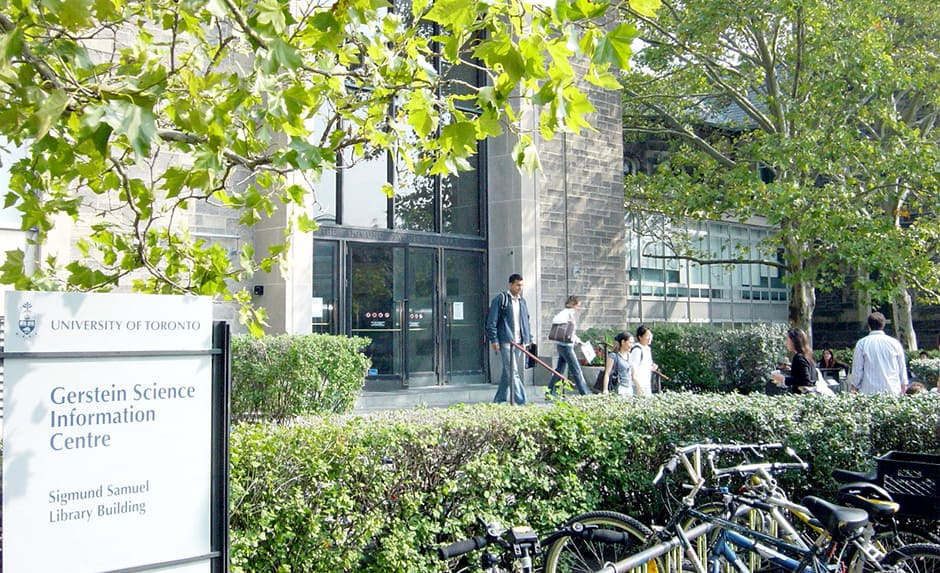The Department of Computer Science (DCS) has opened a new incubator for innovative software solutions.
The DCS Innovation Lab, located in Gerstein Library, is the eighth and latest incubator at the University of Toronto under the province’s Campus-Linked Accelerator (CLA) program. The CLA program is intended “to build world-class innovation and entrepreneurial programs at GTA colleges and universities,” according to a Ministry of Research and Innovation news release.
Helen Kontozopoulos and Mario Grech, directors of the Innovation Lab, want to create an environment for student innovations in software.
“Our end goal here is to create an environment where we’re building innovation, which can be in entrepreneurship like startups. They can also be innovations within organizations like intra-preneurship,” says Kontozopoulos. “We want to build an environment where students are working and learning from and developing with industry, with research that we have on campus.”
“The idea here is to teach them how to go about solving significant problems and actually commercializing, whether it’s through a start-up or industry itself,” adds Grech.
The idea was pitched to the department by the pair just last year, stemming from a fourth-year course in Business of Software that they run.
According to Grech, the program is “[conducted] as a venture capitalist would or as a leader in industry that would be investing in a project in a large company.”
Kontozopoulos recognized that though the students in the department were some of the top students in Canada, they were limited in pursuing their ideas. “A lot of them have this thriving want to create and build something,” says Kontozopoulos.
In developing the concept for the Innovation Lab, the directors consulted with students on the requirements for the space, including Jonathan Webb, president of the Computer Science Student Union.
“I remember having a very clear discussion with [Webb] during the summer months about how students were frustrated because they didn’t have an avenue or clear path to drive innovation beyond the department,” says Grech.
Kontozopoulos echoes this frustration: “Our computer science students didn’t have this. They would go to other incubators or accelerators on campus, off campus, or worldwide.”
The space is currently being used by the students in the Business of Software course and students pursuing an independent studies project. In the coming weeks, the space is slated to open to students through the new summer entrepreneurship program.
Kontozopoulos and Grech also gave credit to Sven Dickinson, chair of the Department of Computer Science, and Paul Gries, associate chair for undergraduate studies in computer science, for supporting the project. “These two men were forward-leaning and had this idea of giving students more than they had now. Helen and I both come from industry, so in our discussions with these two gentlemen, they felt that given the plans and the vision, we managed to help them found a number of things,” says Grech.
Funding for the incubator will come from a myriad of sources, including the provincial government under the CLA program, the equity the university holds in projects that are successful, and industry endowments.
The directors hope that the Innovation Lab will become self-sustaining and that the success of projects from the lab will contribute to more projects. “It has to be a sustainable model that drives money in and doesn’t take money out,” says Kontozopoulos.
When asked what makes the DCS Innovation Lab different from other campus incubators, Grech noted that technological innovation is now dependent on software.
“Take artificial intelligence for example; you bring disciplines from all over campus. Anything that wants to be innovated on, whether it’s a subject matter on music, anthropology, sciences, at the end of the day has to come to the software funnel,” says Grech.
Kontozopoulos and Grech hope that the Innovation Lab will be open to all disciplines, with a focus on software.
“We very much want to tie in as many faculty and departments as possible. It’s the way that innovation is created now. The days of silos are obsolete,” adds Grech.


